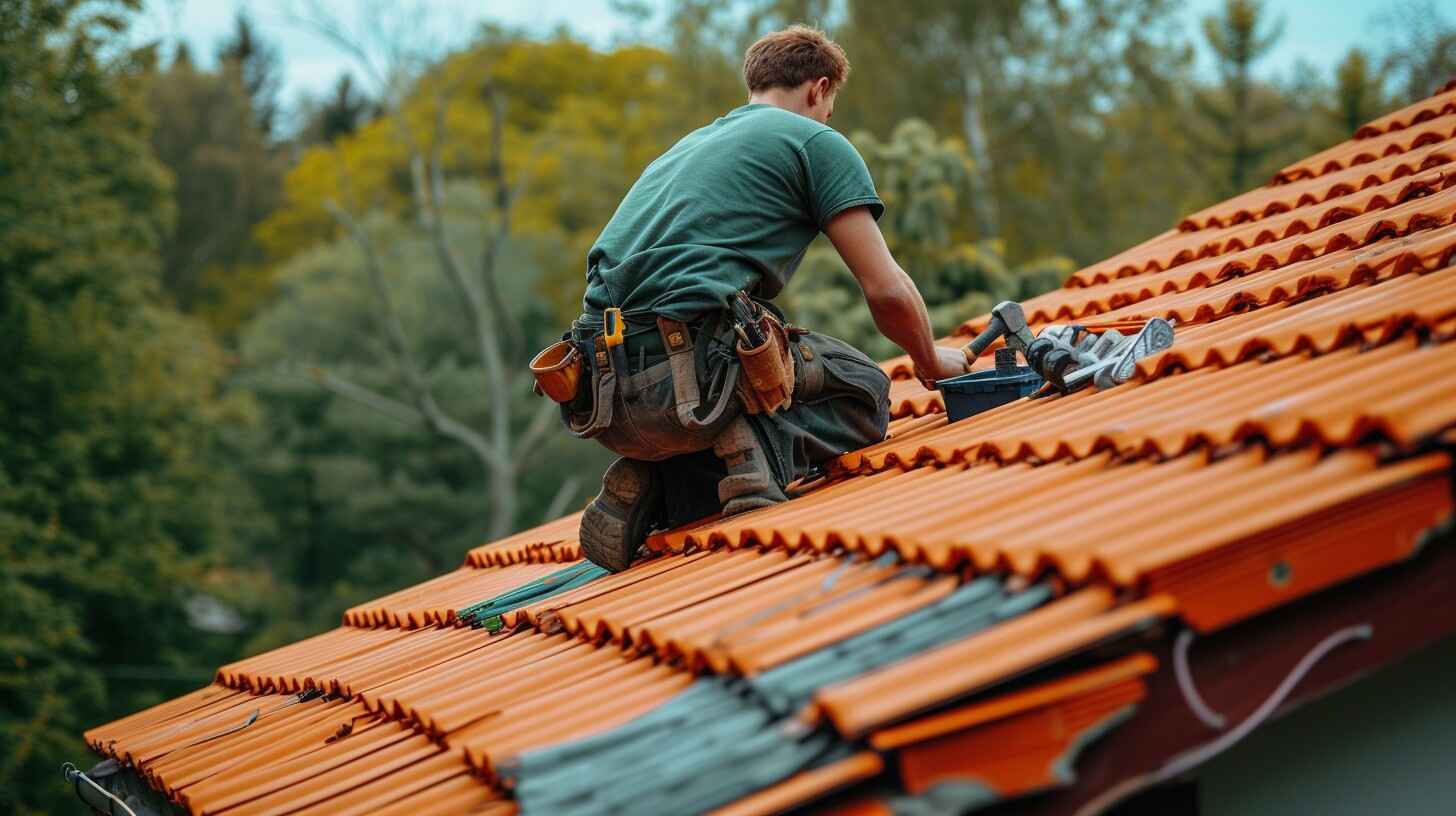Roof repair guarantees vary based on roofing material, scope, and contractor skill. Metal roofs may have more extended warranties than asphalt shingle roofs. Extensive repairs often indicate a need for an extended warranty. Industry standards and best practices ensure quality work and customer satisfaction. Evaluating warranty options involves analyzing coverage, understanding terms, and selecting for peace of mind. Making an informed decision requires examining terms, evaluating coverage, considering the roofing company‘s reputation, and comparing packages. These factors are pivotal in determining the ideal duration for your roof repair guarantee.
Factors Affecting Guarantee Length
The length of a roof repair warranty is primarily influenced by several critical factors, including the type of roofing material used, the scope of the repair work, and the roofing contractor’s qualifications. Different roofing materials have varying lifespans and durability, leading to differences in warranty lengths. For instance, a repair on a metal roof might come with a more extended warranty than one on an asphalt shingle roof due to the materials’ intrinsic variances in longevity.
Moreover, the extent of the repair work plays an essential role in determining the warranty length. Minor repairs may come with shorter warranties, while more extensive repairs involving multiple areas of the roof could merit a more extended warranty period to guarantee the structure’s overall integrity.
Lastly, the qualifications and reputation of the roofing contractor are vital factors. Contractors with a proven track record of quality artistry and customer satisfaction may offer more extended warranties to instill confidence in their services and assure customers of the repair’s durability.
Industry Standards and Best Practices
Adhering to industry standards and best practices is essential in securing the quality and longevity of roof repair work. Industry standards are benchmarks for quality artistry, materials, and safety measures that should be followed during roof repair projects. These standards are established by organizations such as the National Roofing Contractors Association (NRCA) and the Roofing Industry Committee on Weather Issues (RICOWI) to promote excellence and consistency within the roofing industry.
Best practices, conversely, encompass techniques, methods, and approaches that have been proven to yield optimal results in roof repair. These practices are often based on years of experience, research, and feedback from industry professionals. By adhering to industry standards and best practices, roofing contractors can ensure that repairs are conducted efficiently, effectively, and with the highest level of craftsmanship.
Additionally, following industry standards and best practices can enhance customer satisfaction, as clients can trust that the repairs are completed to a high standard and are likely to withstand the test of time.
Evaluating Roof Repair Warranty Options
When considering roof repair warranty options, assessing the coverage provided and the terms and conditions outlined to guarantee complete protection for the repair work is essential. Evaluating roof repair warranty options involves thoroughly reviewing the extent of coverage the warranty offers. This includes understanding whether the warranty only covers the materials used in the repair, the artistry, or both. Ensuring that the warranty encompasses a thorough range of potential issues that may arise post-repair is vital. In addition, pay close attention to the duration of the warranty period. More extended warranty periods typically indicate the contractor’s confidence in their work.
Furthermore, scrutinize the warranty terms and conditions. Look for any loopholes or exclusions that may limit the coverage provided. By carefully evaluating these factors, you can select a roof repair warranty that offers the best protection and peace of mind for your investment.
Making an Informed Decision
Considering all available information is essential when selecting the most suitable roof repair warranty for your needs. To make an informed decision, start by thoroughly examining the terms and conditions of each warranty option. Pay close attention to the coverage provided, including whether it includes labor, materials, and any potential additional expenses. Understanding the warranty duration is vital; longer warranties may offer more extended protection but could come with higher costs. Evaluate the reputation and reliability of the roofing company offering the warranty. Research their track record, customer reviews, and how they handle warranty claims.
Furthermore, consider the specific climate and environmental factors that may impact your roof. For instance, if you live in an area prone to severe weather conditions, opting for a more inclusive warranty could save you from costly repairs. Finally, compare different warranty packages side by side to determine which one aligns best with your budget and provides the most thorough coverage for your roof repair needs. By systematically evaluating your options, you can confidently choose a roof repair warranty that offers you peace of mind and protection for years to come.
Other Roofing Tips

1 Comment
Understanding the Main Types Of Roofing Warranties | Premier Home Solutions
July 18, 2024[…] How Long Should a Roof Repair Be Guaranteed For? […]